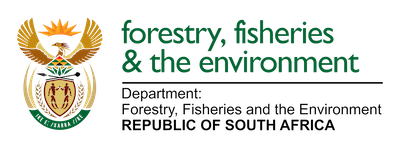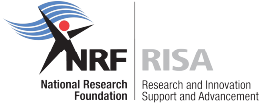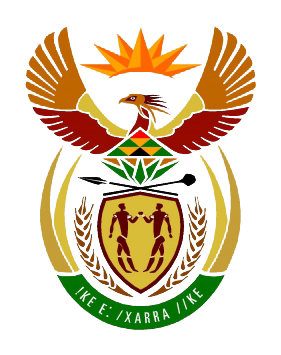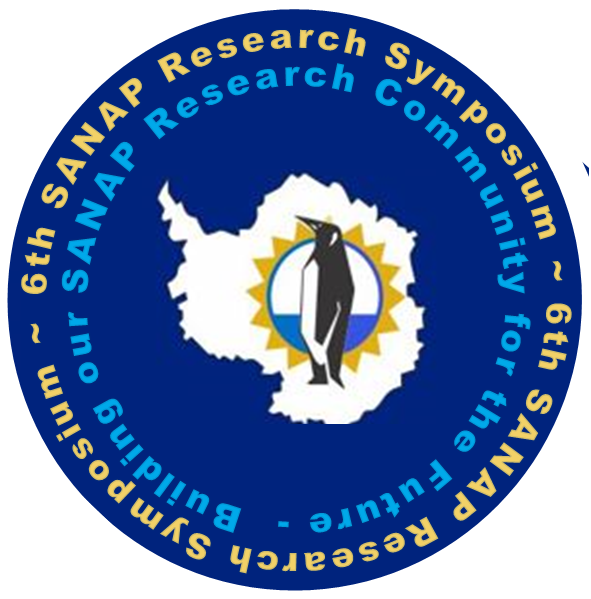
by Ria Olivier | Dec 12, 2023 | International Days, Research, SA Polar Research Infrastructure, SANAP, SANAP Student, SAPRI, SCAR, Science, SEAmester
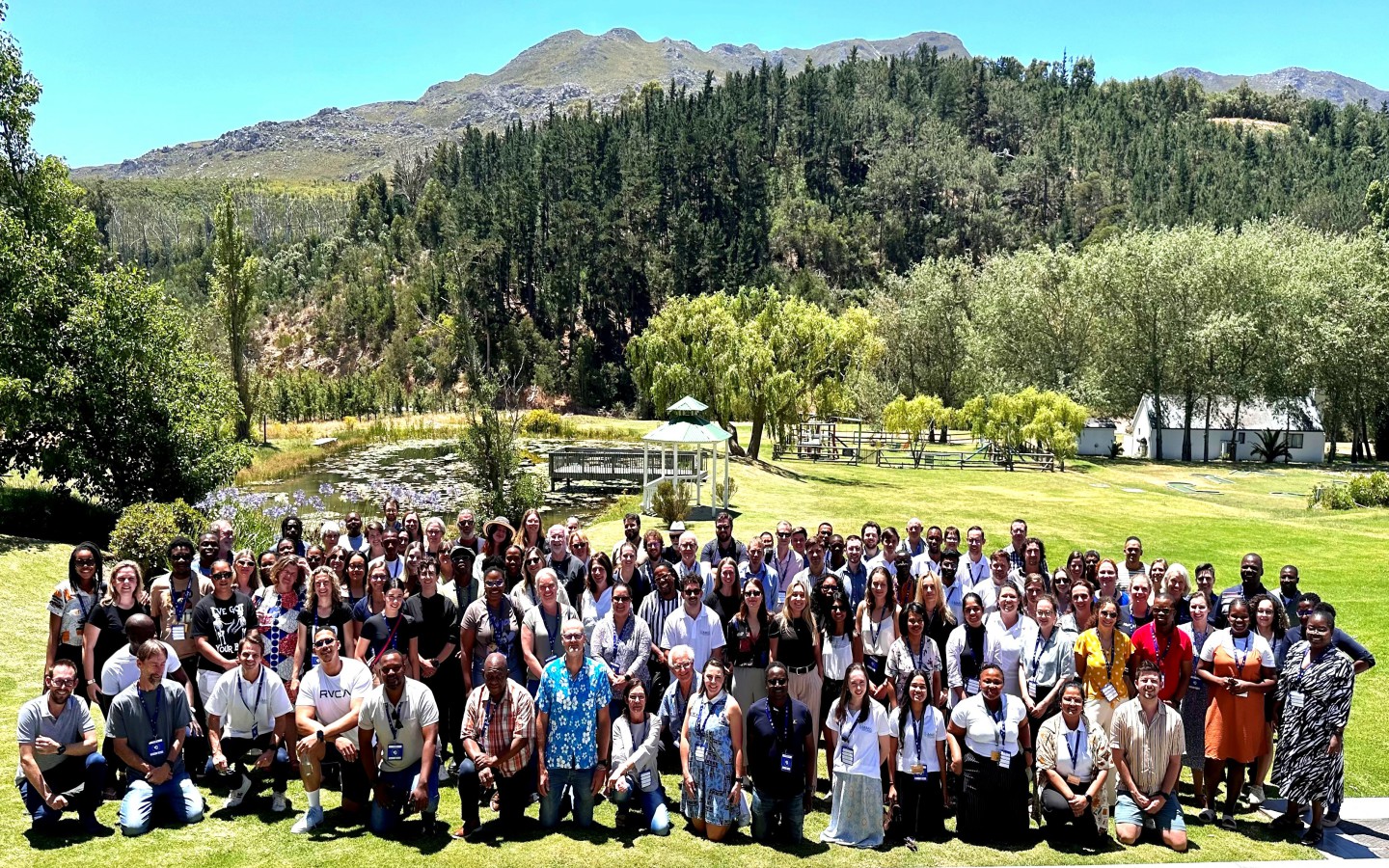 Over a period of 5 days 172 people participate in the 6th SANAP symposium. A lot has happened in the past 4 years since the last symposium in Hermanus in 2018 and feedback on research and other activities within SANAP featured on the program. The symposium was hosted by Stellenbosch University at Houw Hoek Hotel in the Grabouw valley where the participants built on a SANAP Research community for the future.
Over a period of 5 days 172 people participate in the 6th SANAP symposium. A lot has happened in the past 4 years since the last symposium in Hermanus in 2018 and feedback on research and other activities within SANAP featured on the program. The symposium was hosted by Stellenbosch University at Houw Hoek Hotel in the Grabouw valley where the participants built on a SANAP Research community for the future.
The Symposium kicked off with a hybrid meeting of the South African national committee for SCAR and the first evening a keynote lecture was presented by Prof Jukka Tukhuri (Aalto University, Finland) on the discovery of Shackleton’s Endurance on a voyage of the SA Agulhas II. During the symposium keynote lectures and plenary talks were given by Dr Peter Convey of British Antarctic Survey, Dr Sue Tonin of Mouse Free Marion and Prof Marcello Vichi on the Polar Lab part of the South African Polar Research Infrastructure (SAPRI).
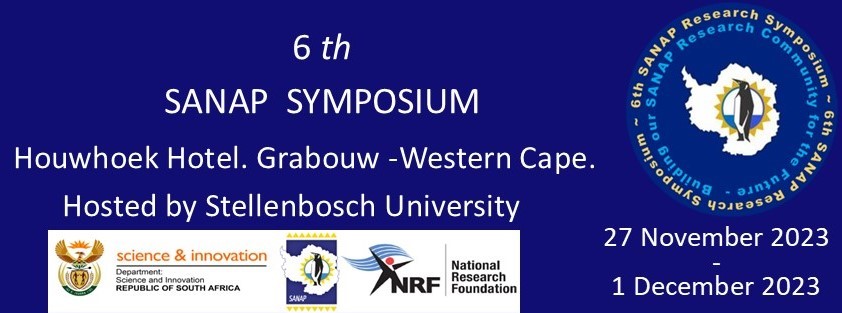 The purpose of the symposium was to facilitate the free exchange of scientific information within SANAP research. In the Marine and Antarctic Research strategy it states that: “The need for coordinated, extensive and targeted research in the marine and oceanic domain has been underlined. Coordination has become important as there has been a shift in marine science from resources and process studies that could be carried out by small groups or individuals to very large-scale regional climate and ecosystem studies, where the success, nooses and benefits lie in the coordination.” One of the strategies outlined is: “creation of a society informed on the value of marine and Antarctic research initiatives.”
The purpose of the symposium was to facilitate the free exchange of scientific information within SANAP research. In the Marine and Antarctic Research strategy it states that: “The need for coordinated, extensive and targeted research in the marine and oceanic domain has been underlined. Coordination has become important as there has been a shift in marine science from resources and process studies that could be carried out by small groups or individuals to very large-scale regional climate and ecosystem studies, where the success, nooses and benefits lie in the coordination.” One of the strategies outlined is: “creation of a society informed on the value of marine and Antarctic research initiatives.”
The following five thematic (vertical) areas were prioritised for research sessions and various principal investigators and researchers within SANAP chaired the sessions:
- Oceans and marine ecosystems under global change – Dr Rampai, Dr Fietz, Dr Thomalla, Dr Nicholson and Dr Lamont
- Earth systems observations – Prof Nel, Dr Lotz
- Ecosystems, biodiversity and biodiscovery – Prof Van Vuuren, Prof Cowan, Dr Greve, Prof Pistorius, Dr Wege,
- Innovation and development – Prof A Bekker
- Human Enterprise – Dr Lavery
Cross-cutting support interventions were discussed such as:
- Coordination and governance by Dr Gilbert Siko and Tracy Klarenbeek
- Human capital development and transformation chaired by Prof Ansorge
- Public awareness and engagement chaired by A Louw
- Research Infrastructure and platforms chaired by Dr T Morris
- Data management chaired by Dr Treasure
Feedback from SA National Committee for SCAR, APECSSA, SCALE expeditions and SEAmester were given and an evening session was held by the APECSSA committee where all the early career researchers that attended the symposium had great discussions. The newly established SAPRI was showcased to the SANAP community in cross discipline sessions on research infrastructure and platforms, data management and engagement, and a keynote lecture on the SAPRI Polar Lab that concluded all the research presentations
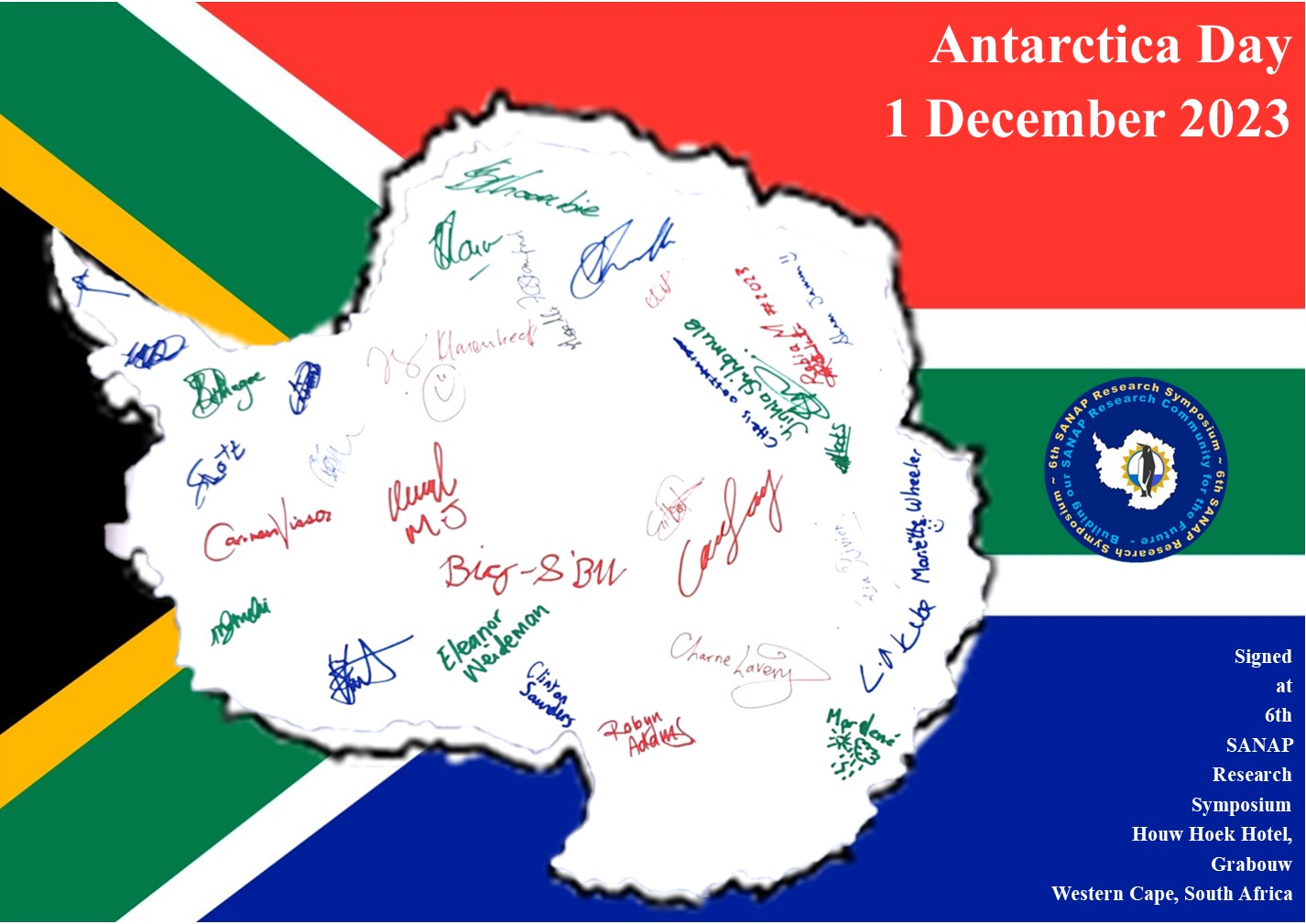
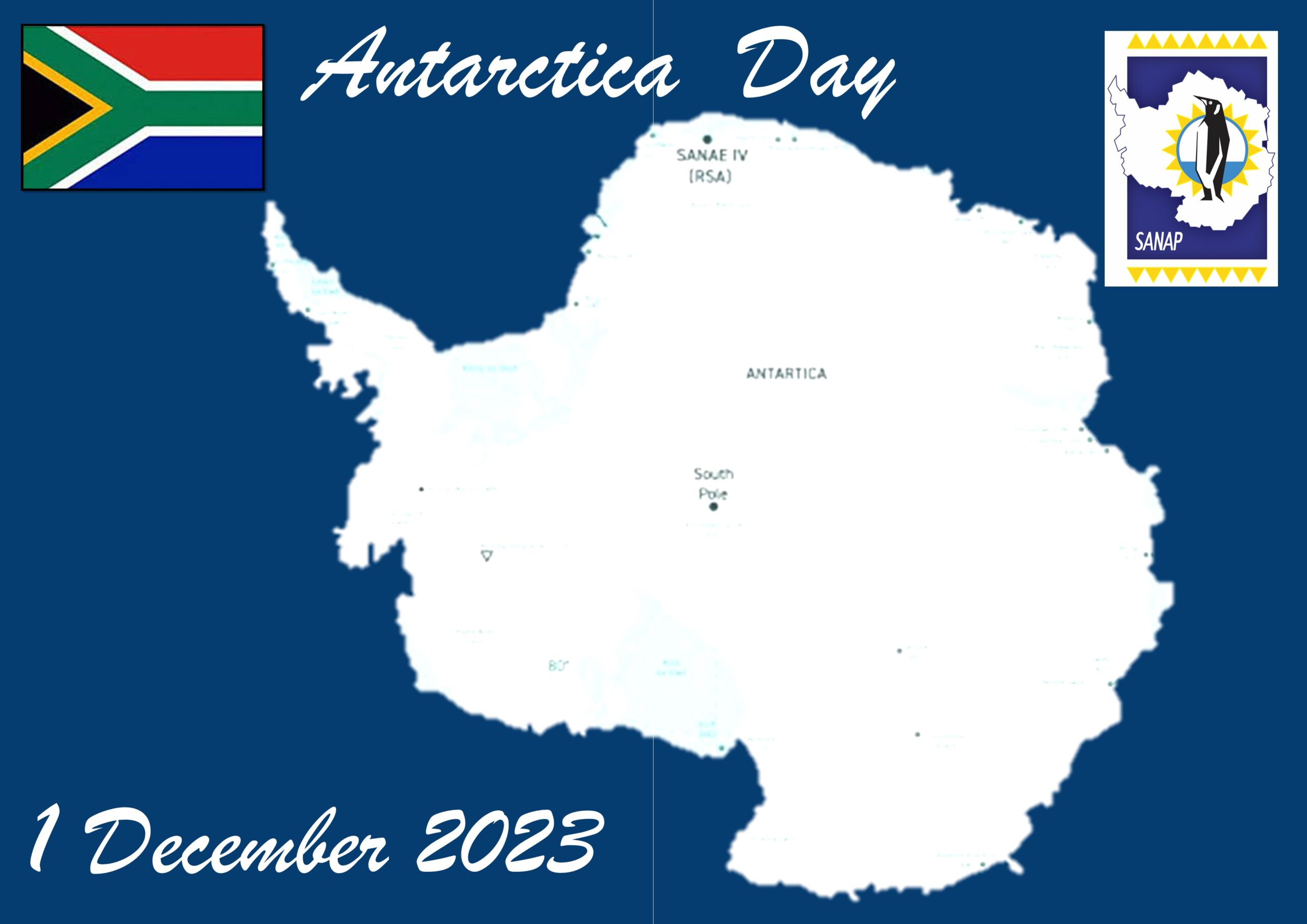 It was the first time that so many South African polar researchers were together on the 1st December on International Antarctic Day and a special Antarctic Breakfast took place to commemorate this International Day. A map of Antarctica, was signed and a cake was provided to celebrate the occasion.
It was the first time that so many South African polar researchers were together on the 1st December on International Antarctic Day and a special Antarctic Breakfast took place to commemorate this International Day. A map of Antarctica, was signed and a cake was provided to celebrate the occasion.
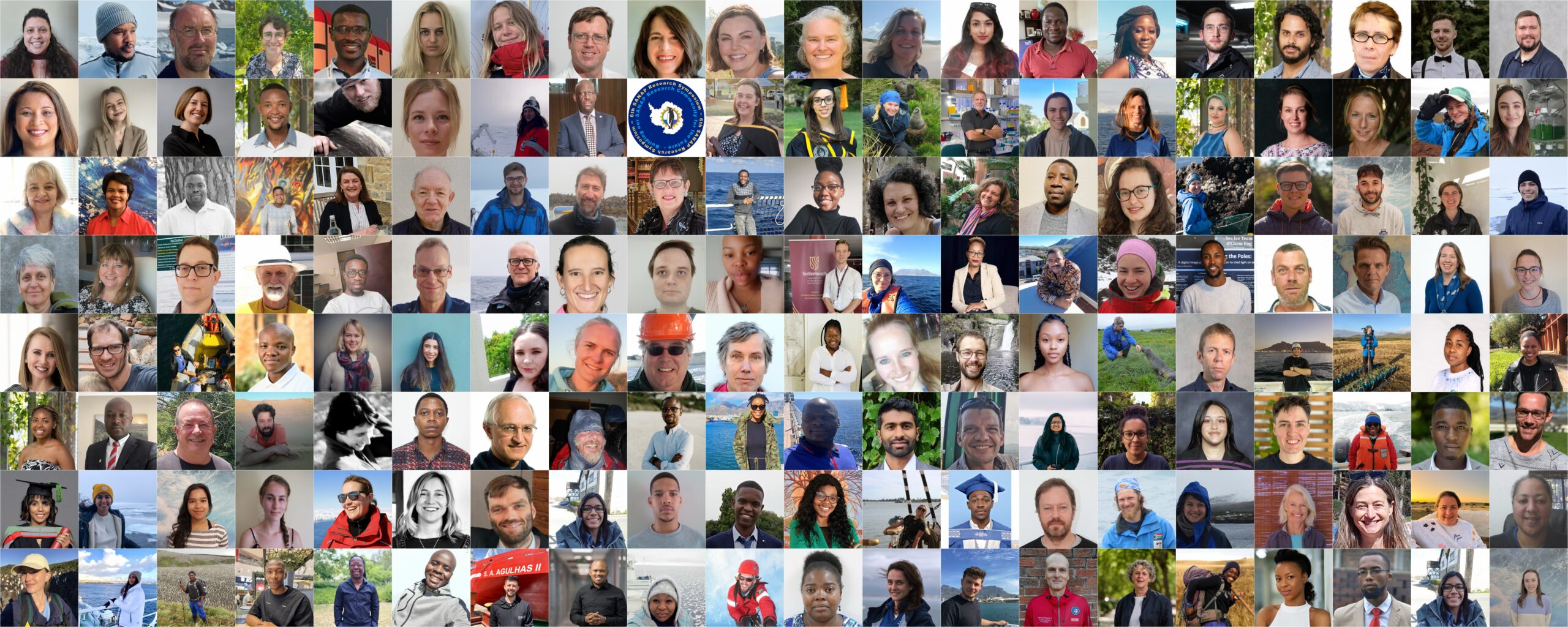 The organising committee would like to thank all participants and attendees for making the 6th SANAP symposium a success and achieving its aim in building a SANAP research Community for the future. We are looking forward to the next Symposium in Kruger National Park in 2025 that will be hosted by a consortium of University of Johannesburg, Fort Hare University and the University of the Free State.
The organising committee would like to thank all participants and attendees for making the 6th SANAP symposium a success and achieving its aim in building a SANAP research Community for the future. We are looking forward to the next Symposium in Kruger National Park in 2025 that will be hosted by a consortium of University of Johannesburg, Fort Hare University and the University of the Free State.
Comment by an ECR: “This was my very first SANAP symposium and it was absolutely incredible! Job well done to all those who assisted in organizing the event. Although it was a jam-packed week, the sessions were extremely interesting and well organized. The location was a perfect venue choice for this kind of event – especially for people to mingle, engage with one another and building strong relationships as well as for making connections for potential research collaborations. I am really impressed with the big focus that this symposium had on Early Career Researchers – I think it is a great way of getting the younger professionals more involved and to network! Congrats on pulling off a very successful SANAP Symposium!”
More will follow of the symposium and sessions that took place with a photos.
A huge thank you to the NRF for making the symposium possible and to all our suppliers and sponsors; Houw Hoek Hotel, Neelsie Travel Bureau, Adjuvo enterprises, Trilogy Audio Services, Crazylicous Cookies.
Featured Image: David Hedding
Image of signatures on Antarctica map : Anche Louw
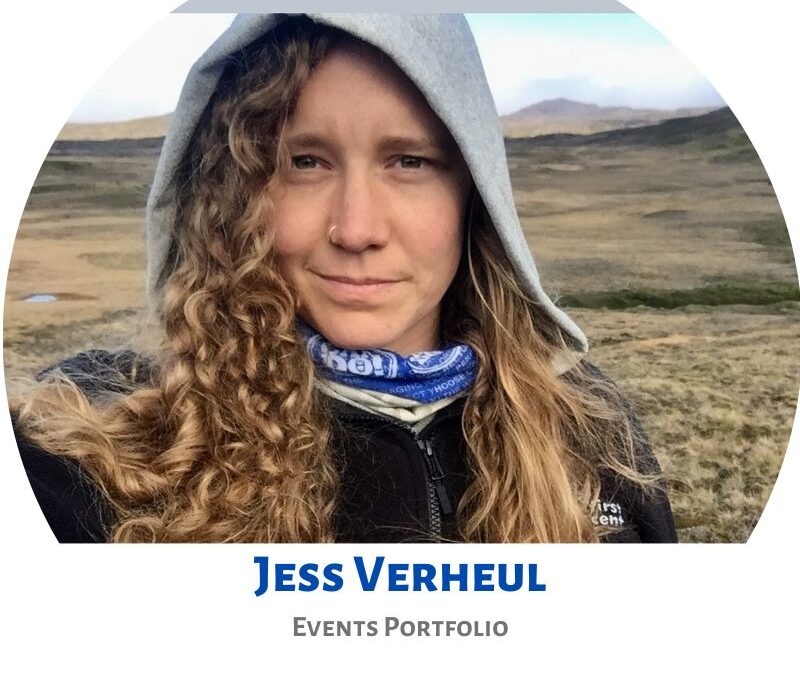
by Ria Olivier | Sep 27, 2022 | Announcement, Antarctica, Legacy, Research, SANAP, SANAP Student, Science, STEM
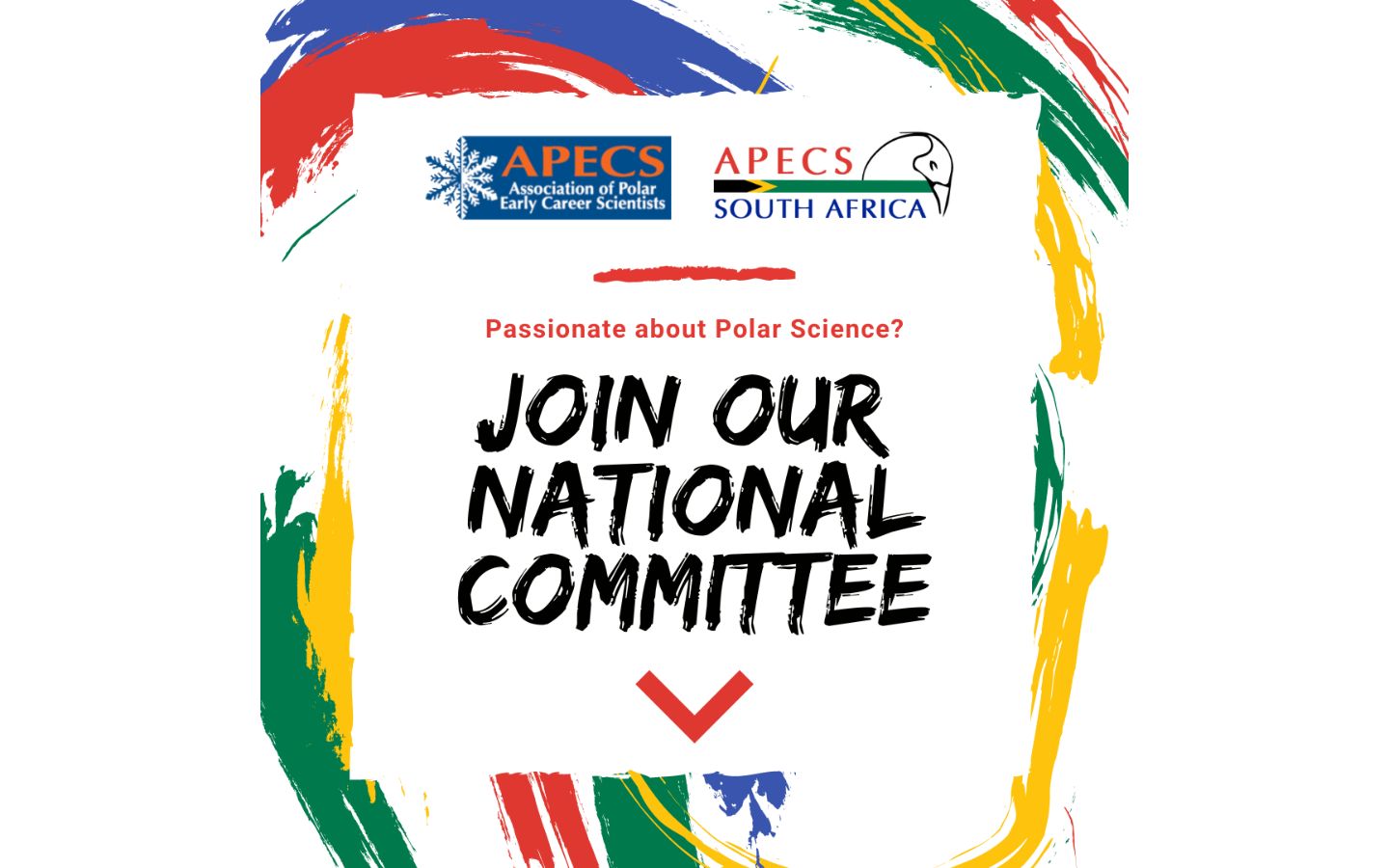 Applications are now open to join the national committee of APECS-SA, the South African National Committee of APECS (Association of Polar Early Career Scientists).
Applications are now open to join the national committee of APECS-SA, the South African National Committee of APECS (Association of Polar Early Career Scientists).
APECS-SA is looking for early career scientists, enthusiasts, naturalists, and good storytellers passionate about Polar Research, to join the team.
As polar researchers, we are responsible for communicating the value of polar research, and APECS-SA needs your help!
If you are not an APECS member yet, join APECS-SA today and apply to be on the National Committee.
Application deadline: 31 October 2022
Apply here!
The current National Committee
Read more about the NC members
Read more about APECS-SA
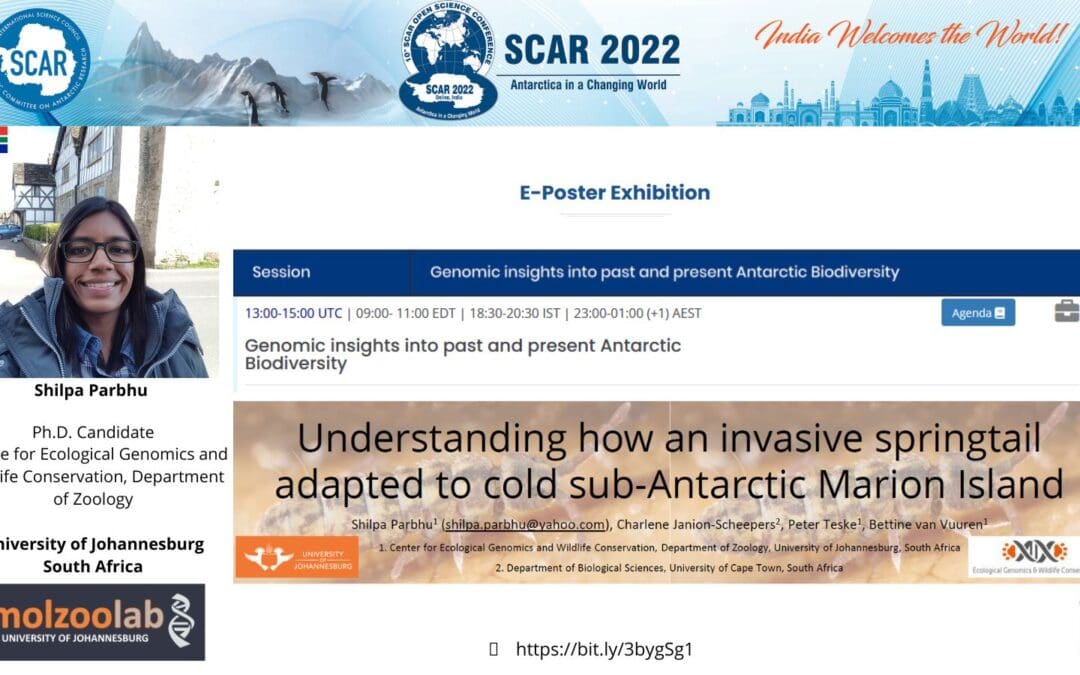
by Ria Olivier | Aug 17, 2022 | Antarctica, News, Research, SA Agulhas II, SANAP, SANAP Student, Science, Southern Ocean, sub-Antarctic
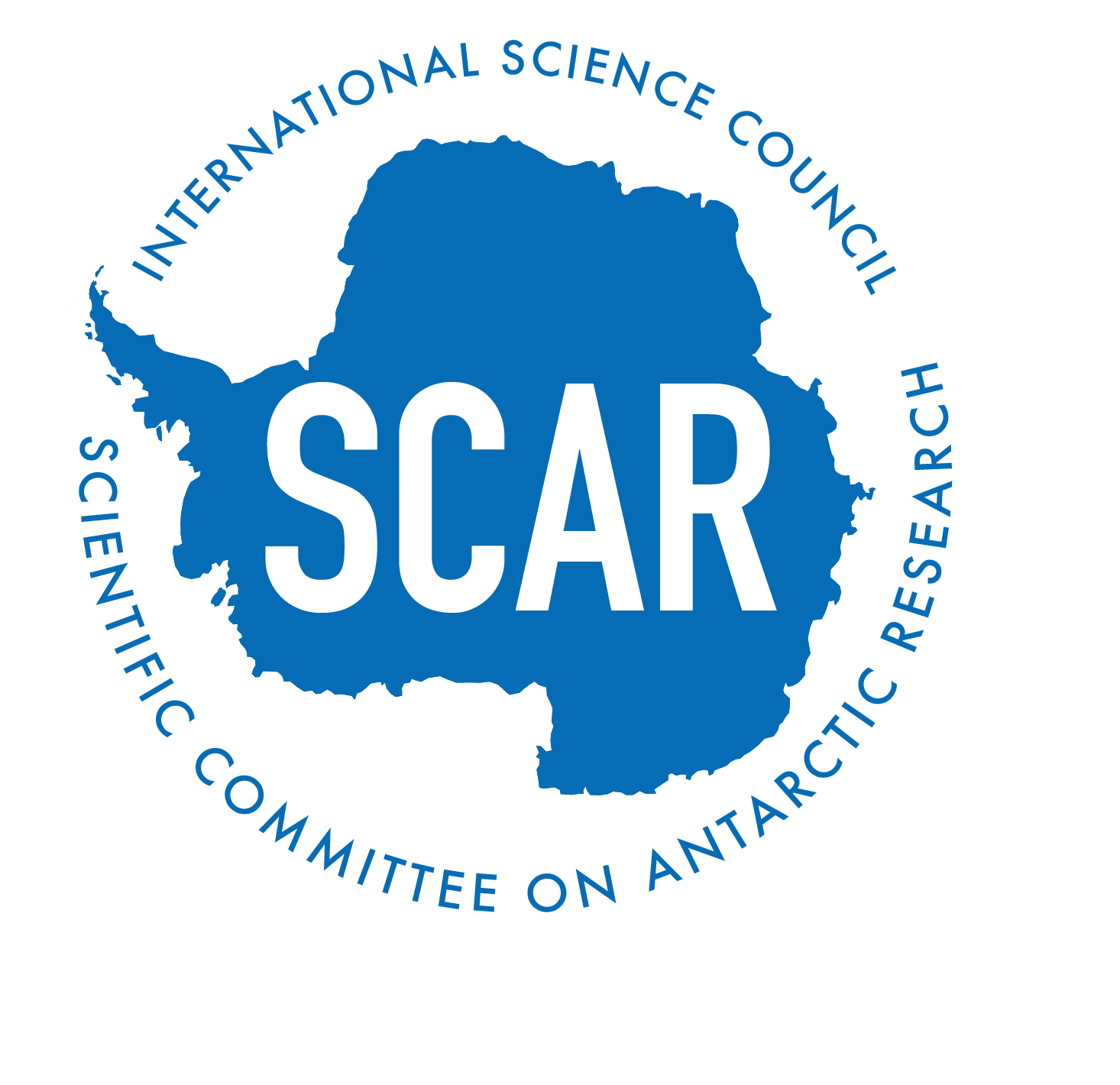
“SCAR’s mission is to advance Antarctic research, including observations from Antarctica, and to promote scientific knowledge, understanding and education on any aspect of the Antarctic region. To this end, SCAR is charged with the initiation and international co-ordination of Antarctic and Southern Ocean research beneficial to global society. One of the most effective ways to do this is to bring researchers together to share their latest results, discuss new ideas, and provide opportunities to develop new projects” – www.scar.org
SCAR expanded its biennial business meetings to include an Open Science Conference (OSC). This year’s open science conference was held from 1 – 10 August 2022, hosted by India. It made it possible for participants and attendees to discuss current results and develop future projects. The conference included plenary, parallel and satellite events, as well as workshops. Business meetings of the science groups were held before the open science conference.
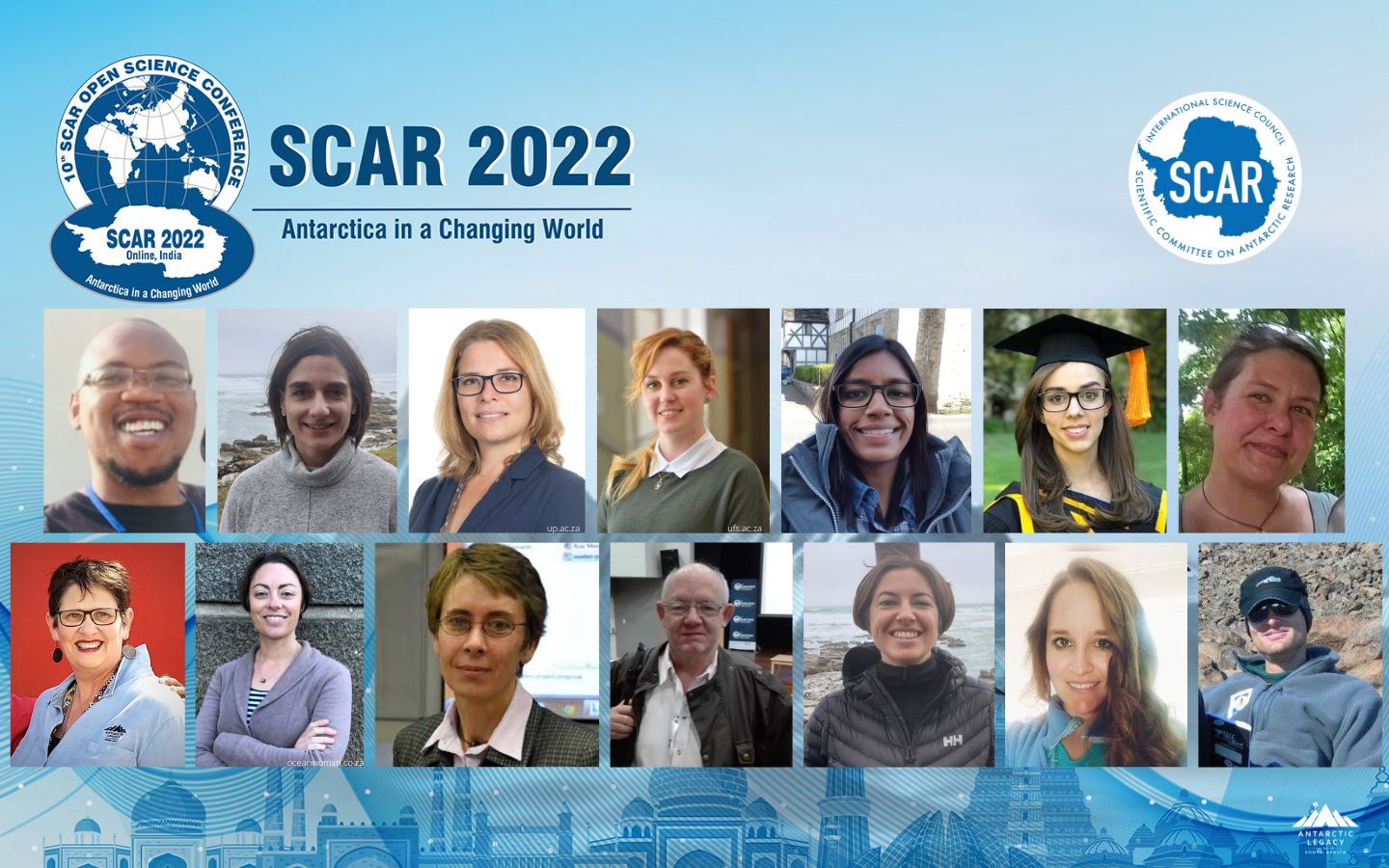
South Africans participated and attended various sessions during the conference (see details below):
- Keynote speaker Katye Altieri: “Stable isotopes as a tracer of reactive nitrogen emissions and aerosol formation in the Southern Ocean”.(link)
- Bettine van Vuuren chaired a mini-symposium.
- Christel Hansen, Mia Wege, Geoff Grantham, and Charne Lavery were session convenors.
- The business meetings were attended by Bettine van Vuuren, Sarah Fawcett, Ria Olivier, Christel Hansen, Anche Louw, Charney Lavery, Geoff Grantham, Thulani Makhalanyane and Werner Nel.
Presentations delivered:
- Geoff Grantham: The Age And Chemistry Of Granitic Gneisses From The Western H.U.Sverdrupfjella, Maud Terrane, Western Dronning Maud Land, Antarctica. (link)
- Ria Olivier: Digging into the Past; An archive as a tool to compile and establish a timeline of human impact in our polar heritage (link); Collaboration of South African Researchers in an Extreme Cold Environment. (link)
- Marcel du Plessis: Insights from the SO-CHIC Expedition: what have we done and where are we now? (link)
- Morgan Raath-Krüger: Do Anisotropic Processes Influence Fine-Scale Spatial GeneticStructure Of A Keystone Sub-Antarctic Plant Species? (link)
- Charne Lavery: Antarctica, Africa and the Arts (link)
- Adrienne van Eeden Wharton: On Aftermaths and Afterlives, Afterimages and Aftersounds: Mourning-As-Witnessing Ecological Destruction in the SouthernOcean/S
- Daniela Monsanto: Landscape Genetics Of A Springtail Endemic To Marion Island (link)
- Sophie Kohler: Ice in the Southern Imagination (link)
- Pedro Lebre: Uncovering The Unexplored: The Microbial Ecology Of Sub-AntarcticIsland Soils (link)
E-Posters:
- Liezel Rudolph: A geospatial database for the sub-Antarctic Prince Edward Islands (link)
- Geoff Grantham: The Kuunga Accretionary Complex of Sverdrupfjella, western Dronning Maud Land, Antarctica (link)
- Shilpa Parbhu: Understanding how an invasive springtail adapted to cold sub-Antarctic Marion Island (link)
- Trevor McIntyre: The ontogeny of southern elephant seal foraging migration strategies: finding their way as they go (link)
Antarctic Legacy of South Africa communicated South Africa’s participation and conference-related announcements on Twitter (47 Tweets). A highlight was the session on the discovery of Shackleton’s Endurance, where South Africa was frequently mentioned during the talk.
What is to come:
- SCAR Delegates Meeting (5-7 September 2022)
- All the best to Bettine van Vuuren and Tracy Klarenbeek attending as SA representatives.
All posters and presentations can be found on the ALSA digital archive.
The conference virtual site is still available – if you have missed out on any sessions you can listen to the recordings, and all abstracts and posters can still be downloaded.
Ria Olivier, Antarctic Legacy of South Africa, 17 August 2022.
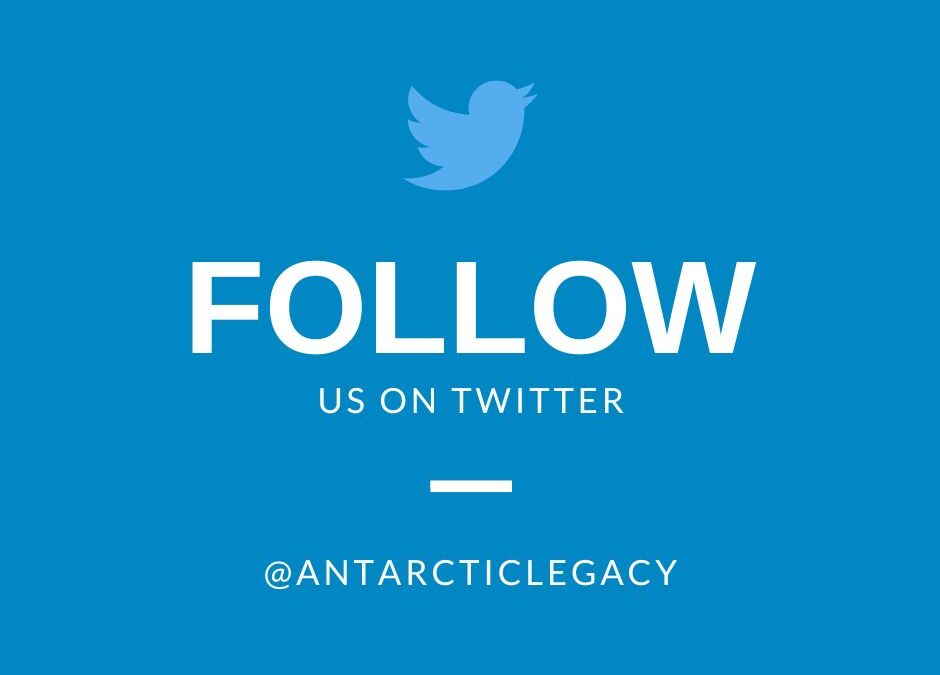
by Ria Olivier | Jul 12, 2022 | Current Event, News, Oceanography, Research, SA Agulhas II, SA Polar Research Infrastructure, SANAP, SANAP Student, SAPolarRI, Science, Southern Ocean, STEM
SCALE (Southern oCean seAsonaL Experiment) Winter 2022 Expedition (SCALE-WIN22) onboard the RV S.A. Agulhas II

This dedicated science cruise is funded by the Department of Science and Innovation (DSI) and the National Research Foundation (NRF) in support of the scientific community involved in Southern Ocean projects (South African National Antarctic Programme – SANAP and other fundings). The South African Polar Research Infrastructure (SAPRI) and the Department of Forestry, Fisheries and the Environment (DFFE) facilitated the coordination of logistics.
This is a continuation of the SCALE coordinated effort (Southern oCean seAsonaL Experiment) proposed by the South African scientific community as a bottom-up experiment.
“SCALE-WIN22 will be a 21 days cruise of intensive sampling of the ocean-atmosphere- sea ice processes in the Antarctic polar zone. Multidisciplinary measurements of physical and biogeochemical properties of the ocean and sea ice will be performed in a set of process stations in the outer and inner MIZ”.
Departure: 11 July 2022
ETA back in Cape Town: 31 July 2022
Area of operation: The S.A. Agulhas II will operate from Cape Town to the Marginal Ice Zone (MIZ) along the Good Hope Line.
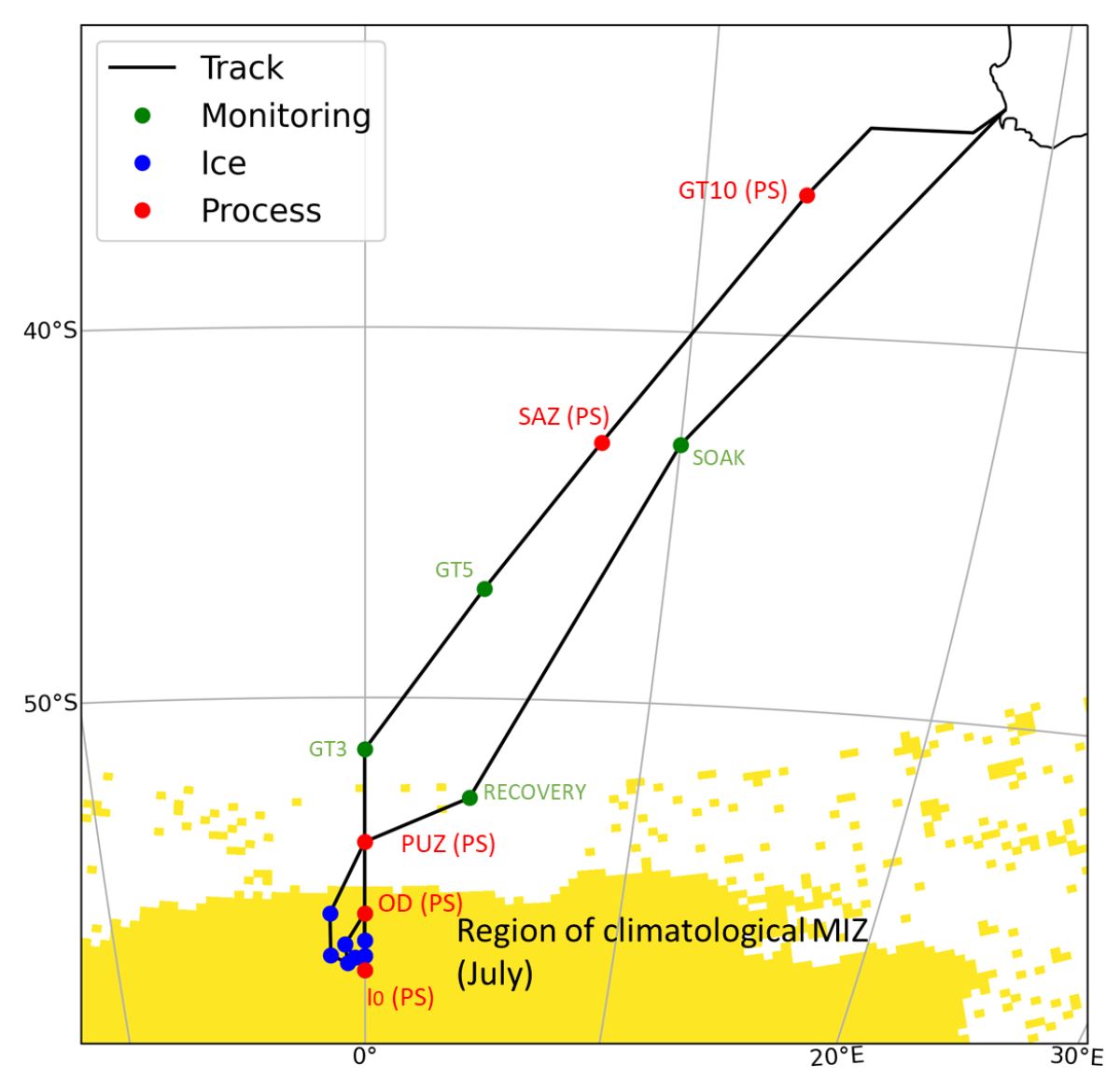
Provisional map of the track and stations.
Chief Scientists:
| Prof Marcello Vichi (UCT, on board) | Dr Sarah Fawcett (UCT, on land) |
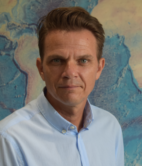 | 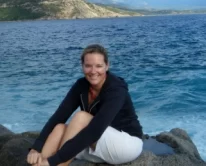 |
This cruise involves 13 national and 4 international research projects:
These projects will be introduced throughout the course of the cruise.
The number of passengers onboard:
84 passengers onboard the vessel. This number includes the 8 South African Polar Research Infrastructure (SAPRI) trainees.
National and international scientific institutions involved:
1. South African Polar Research Infrastructure (SAPRI) and South African Environmental Network (SAEON)
2. University of Cape Town (UCT)
3. Stellenbosch University (SU)
4. South African Weather Service (SAWS)
5. Cape Peninsula University of Technology (CPUT)
6. Council for Scientific and Industrial Research (Southern Ocean Carbon-Climate Observatory – SOCCO)
7. Department of Forestry, Fisheries and the Environment (DFFE)
8. University of Pretoria (UP)
9. Nelson Mandela University (NMU)
10. Representatives from the University of South Africa (UNISA), Rhodes University (RU), University of Kwa-Zulu Natal (UKZN), University of the Free State (UFS), Walter Sisulu University (WSU)
11. University of Gothenburg, Sweden
12. British Antarctic Survey, UK
13. University of Duisburg-Essen, Germany
14. The University of Melbourne, Australia
15. University of East Anglia, UK
16. Mediterranean Institute of Oceanography (MIO), France
17. CNR, Italy
18. University of Tasmania, Australian Antarctic Division, Australia
19. Aalto University, Finland
20. Finnish Meteorological Institute, Finland
21. SYKE, Finland
22. Alfred Wegener Institute, Germany
East Pier, Port of Cape Town. Cruise participants arriving from the quarantine facility. Only participants with negative Covid-19 test results will be allowed onboard.
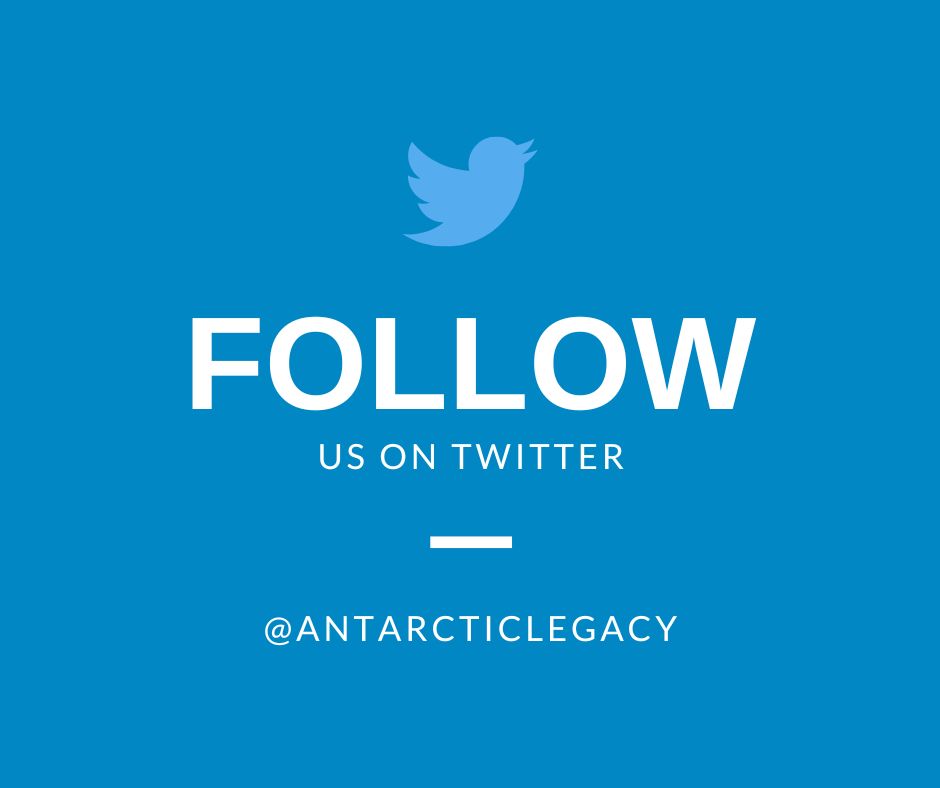
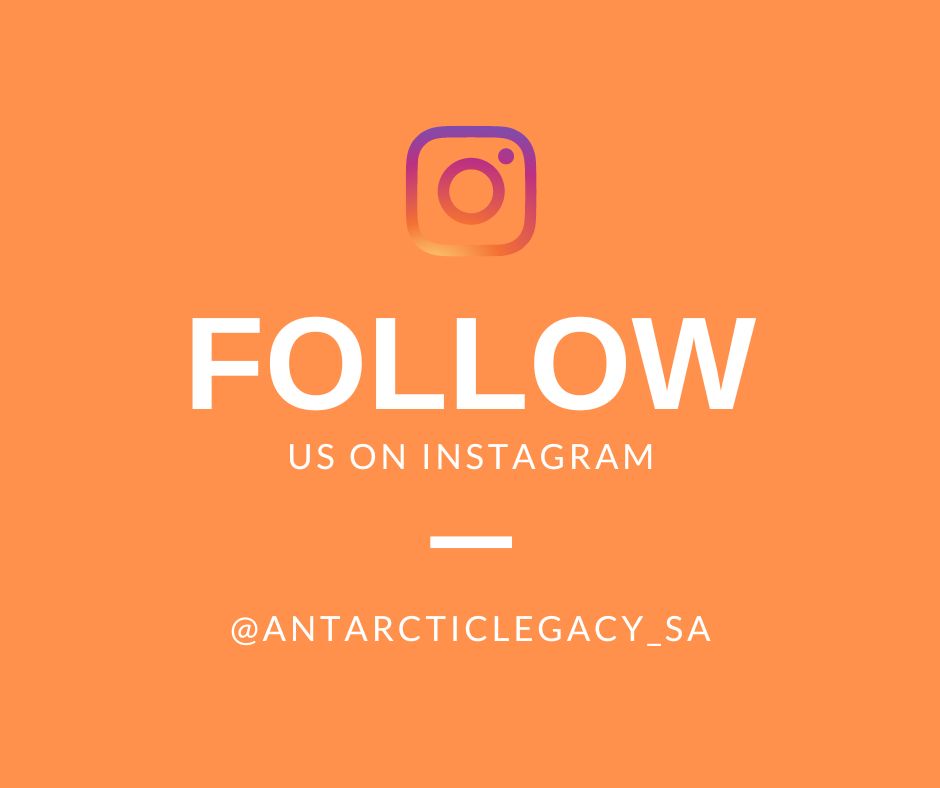
The offical cruise hashtag to be followed: #SCALEwin2022
Anche Louw, Antarctic Legacy of South Africa, 12 July 2022
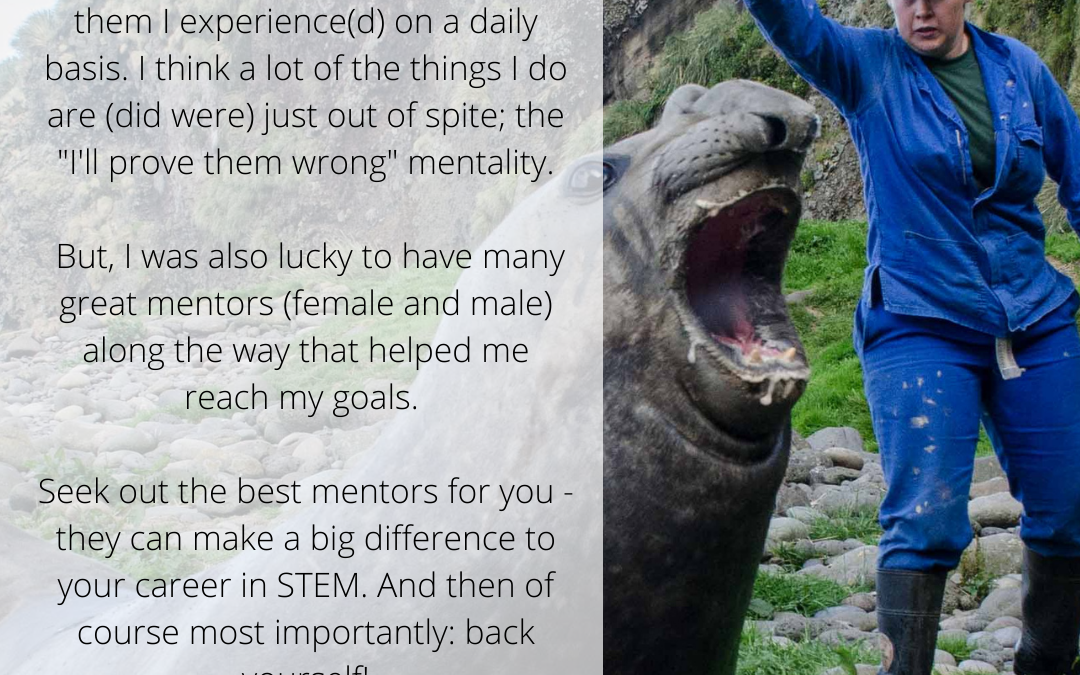
by Ria Olivier | Feb 11, 2022 | Marion Island, Meteorology, Not-Assigned, Oceanography, Research, SA Agulhas II, SANAP Student, Science, Southern Ocean, STEM, sub-Antarctic, Women in Science
In honour of every woman and girl entering the field of science within the Antarctic, sub-Antarctic and Southern Ocean.
Be inspired by the Women in Antarctic, sub-Antarctic and Southern Ocean Science.
Be inspired by the girls taking Marine Sciences as a subject in high school laying the path for their future in science.
Read more about the new SA subject – Marine Sciences: https://bit.ly/3gF9WN7
Anche Louw, Antarctic Legacy of South Africa, 11 February 2022
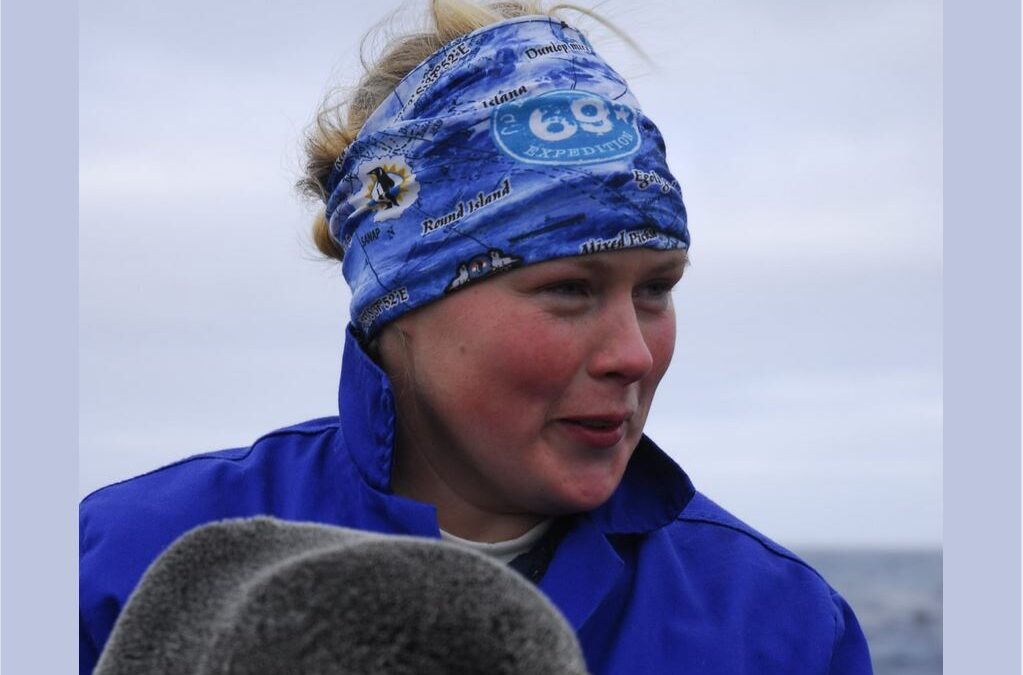
by Ria Olivier | Jan 7, 2022 | Antarctica, Mammology, News, Research, SANAP Student, Science, Southern Ocean, STEM, Women in Science
Congratulations Mia – from overwintering field assistant to lecturer at the University of Pretoria.
Dr Mia Wege was chosen as one of the “100 Women in Polar Science and Support” featured by Women in Polar Science. Mia is a true ‘go-getter’ and an inspiration to all young women in science!
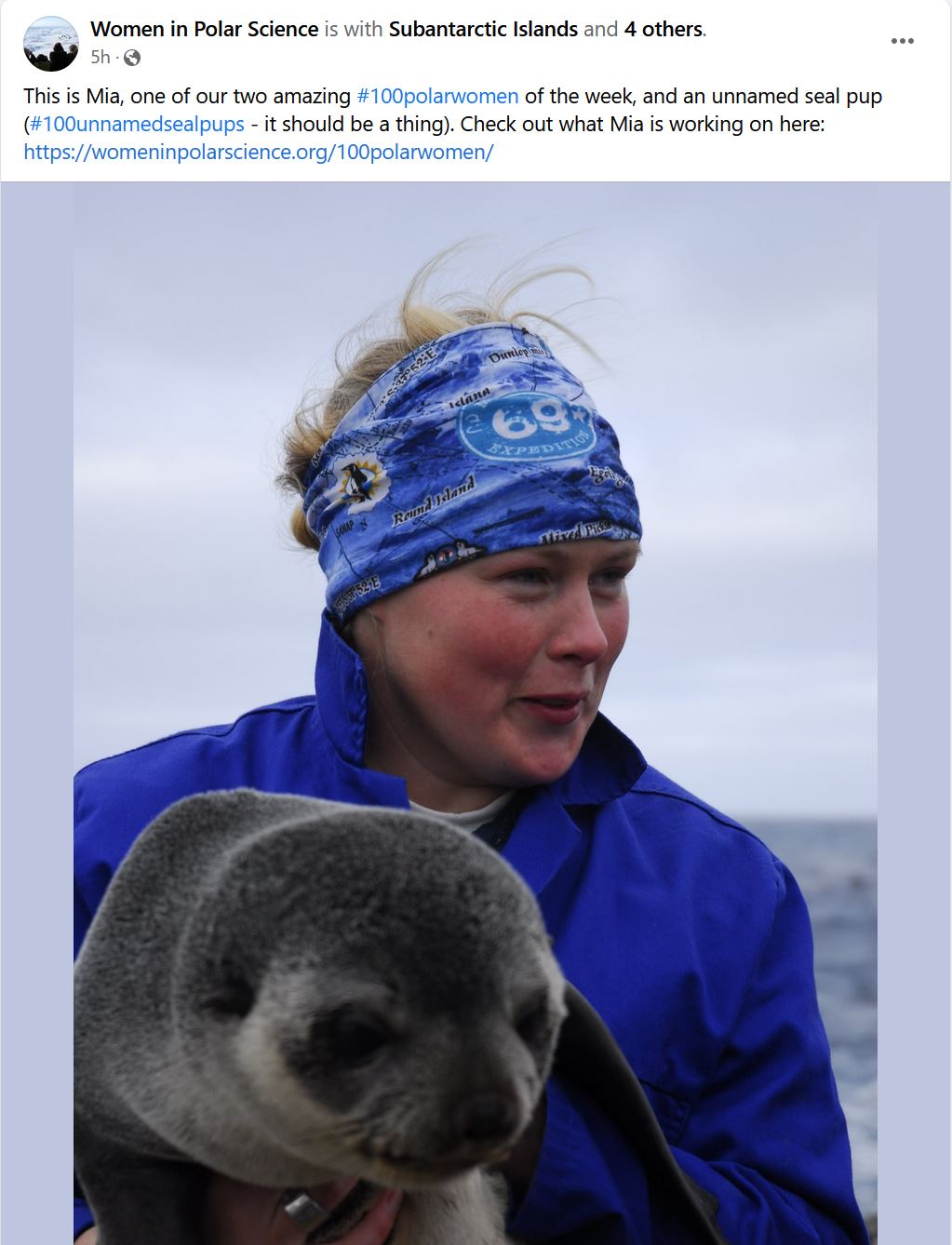
Her connection with SANAP:
In 2009, her journey within the South African National Antarctic Programme started, where she joined the 66th Marion Island Overwintering Team as a “sealer” (Marion Island Marine Mammal Programme) field assistant (see overwintering team photo below). After this expedition, Mia started an MSc at the University of Pretoria, with her project titled: “Maternal foraging behaviour of Subantarctic fur seals from Marion Island”. During her time as MSc student, she applied to return to Marion Island for another year and returned as part of the 69th Marion Island Overwintering team from 2012 to 2013. In the same year of returning from her last overwinter expedition, she completed her MSc and started working on a PhD with her focus on “Population trend and foraging ecology of sympatric Antarctic and Subantarctic fur seals at Marion Island”. She has been on numerous other take-over expeditions to Marion Island, Gough Island, and Antarctica.
Mia completed her PhD, a 3-year Postdoctoral Research Fellow at the University of Pretoria, and another 1-year Postdoctoral Research Fellow at the University of Canterbury. She was recently employed as a lecturer at the University of Pretoria, Department of Zoology & Entomology.
We would like to congratulate Dr Mia Wege on all her qualifications obtained within the South African National Antarctic Programme and her new position as lecturer.
Her passion for the Antarctic is contagious and we encourage all ECR’s (Early Career Researchers) to work hard work and persevere.
Check out Mia’s website here.
Anche Louw, Antarctic Legacy of South Africa, 07 January 2022.

 Over a period of 5 days 172 people participate in the 6th SANAP symposium. A lot has happened in the past 4 years since the last symposium in Hermanus in 2018 and feedback on research and other activities within SANAP featured on the program. The symposium was hosted by Stellenbosch University at Houw Hoek Hotel in the Grabouw valley where the participants built on a SANAP Research community for the future.
Over a period of 5 days 172 people participate in the 6th SANAP symposium. A lot has happened in the past 4 years since the last symposium in Hermanus in 2018 and feedback on research and other activities within SANAP featured on the program. The symposium was hosted by Stellenbosch University at Houw Hoek Hotel in the Grabouw valley where the participants built on a SANAP Research community for the future. The purpose of the symposium was to facilitate the free exchange of scientific information within SANAP research. In the Marine and Antarctic Research strategy it states that: “The need for coordinated, extensive and targeted research in the marine and oceanic domain has been underlined. Coordination has become important as there has been a shift in marine science from resources and process studies that could be carried out by small groups or individuals to very large-scale regional climate and ecosystem studies, where the success, nooses and benefits lie in the coordination.” One of the strategies outlined is: “creation of a society informed on the value of marine and Antarctic research initiatives.”
The purpose of the symposium was to facilitate the free exchange of scientific information within SANAP research. In the Marine and Antarctic Research strategy it states that: “The need for coordinated, extensive and targeted research in the marine and oceanic domain has been underlined. Coordination has become important as there has been a shift in marine science from resources and process studies that could be carried out by small groups or individuals to very large-scale regional climate and ecosystem studies, where the success, nooses and benefits lie in the coordination.” One of the strategies outlined is: “creation of a society informed on the value of marine and Antarctic research initiatives.”
 It was the first time that so many South African polar researchers were together on the 1st December on International Antarctic Day and a special Antarctic Breakfast took place to commemorate this International Day. A map of Antarctica, was signed and a cake was provided to celebrate the occasion.
It was the first time that so many South African polar researchers were together on the 1st December on International Antarctic Day and a special Antarctic Breakfast took place to commemorate this International Day. A map of Antarctica, was signed and a cake was provided to celebrate the occasion. The organising committee would like to thank all participants and attendees for making the 6th SANAP symposium a success and achieving its aim in building a SANAP research Community for the future. We are looking forward to the next Symposium in Kruger National Park in 2025 that will be hosted by a consortium of University of Johannesburg, Fort Hare University and the University of the Free State.
The organising committee would like to thank all participants and attendees for making the 6th SANAP symposium a success and achieving its aim in building a SANAP research Community for the future. We are looking forward to the next Symposium in Kruger National Park in 2025 that will be hosted by a consortium of University of Johannesburg, Fort Hare University and the University of the Free State.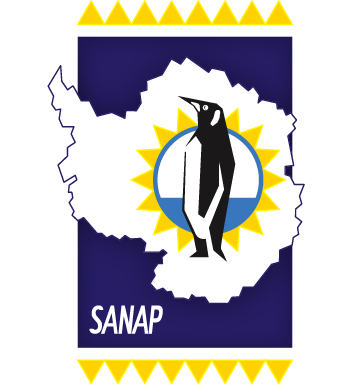

 Applications are now open to join the national committee of
Applications are now open to join the national committee of 













